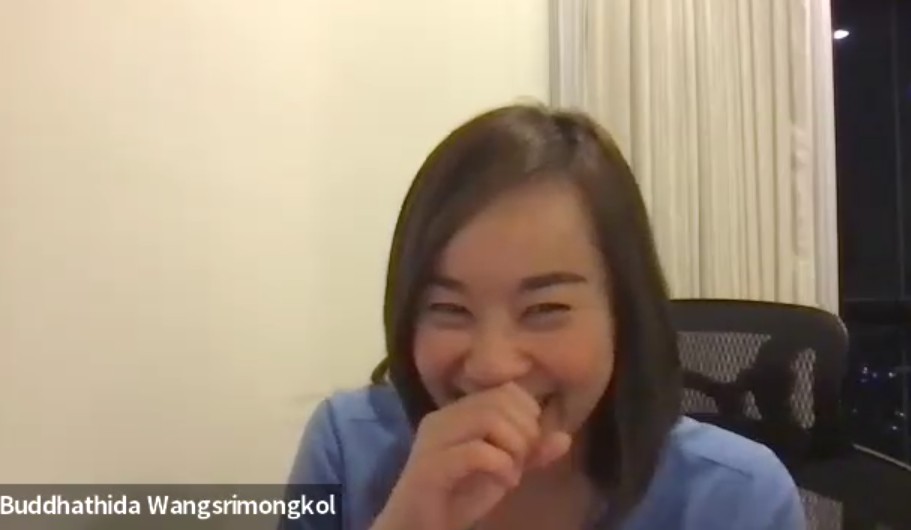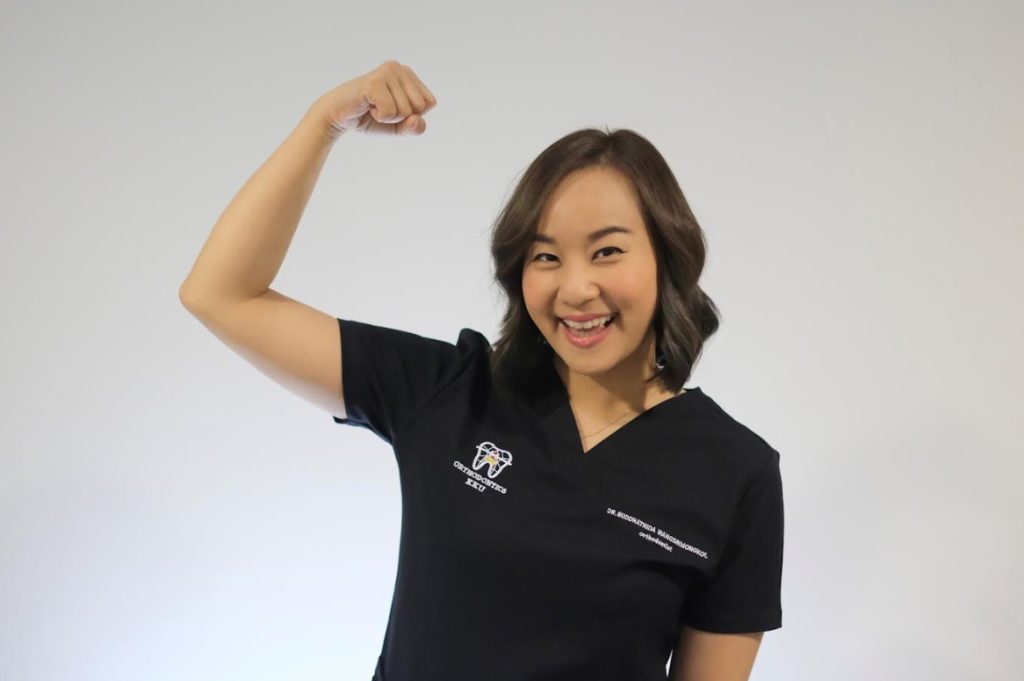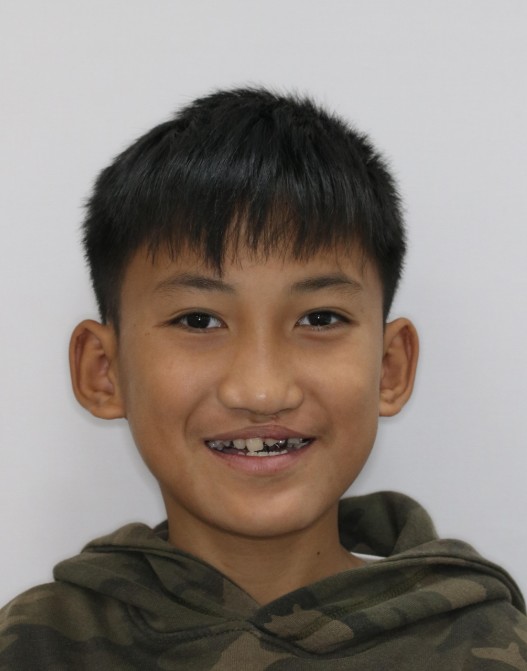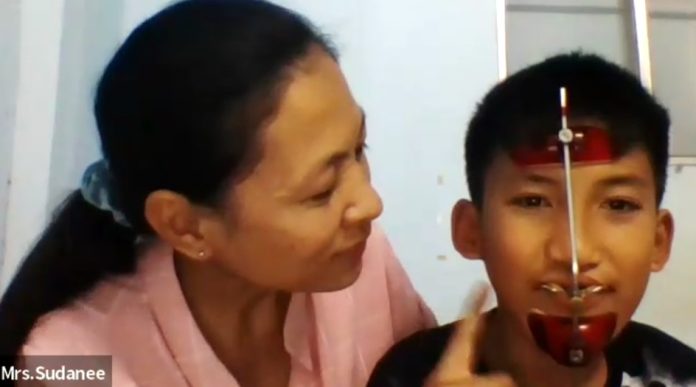By Randall Yip, Executive Editor
Sudanee Chanamarn looks adoringly at her smiling 12-year-old son Sukhontee who friends affectionately call Singto, Thai for lion.
The mother unexpectantly pulled her son into the picture during a virtual call with AsAmNews and her son’s orthodontist, Dr. Buddhathida Wangsrimongkol, about his condition known as midface hypoplasia. That’s a condition of the jaw common in patients with cleft lips and palates. The facial deficiency occurs when the top jaw develops slower than the bottom jaw.
“He’s wearing his facemask!” proclaims Dr. Buddhathida Wangsrimongkol as she giggles with joy at the surprise.

That “facemask” as she called it is similar to a 3D printed device that she herself invented. It goes inside the mouth and extends to the jaw and part of the nose to treat babies born with cleft lips and palates
It’s a condition Singto was born with and one his mother says he has adjusted to quite well.
“He’s actually very confident and you know happy kid,” Sudanee Chanamarn said through an interpreter from Thailand. “He blends well with friends. He’s really good at reading. He’s actually one of the leaders in the classroom,” she said proudly.

Born and raised in Khon Kaen, Thailand, Dr. Wangsrimongkol earned her dental degree at Chulalongkorn University in Bangkok and went on to be trained at Harvard, University of Michigan and NYU.
She works at Thailand’s Khon Kaen University Hospital, a Smile Train partner. Smile Train is the largest cleft-focused organizations with a presence in 75 countries. The non-profit says it’s sponsored more than 2 million free cleft surgeries in the past 25 plus years.
“We have a lot of patients who have cleft lip and palate in this area. A lot of the times when we offer surgery or orthodontic treatment, they cannot afford these procedures. With Smile Train support, they can move forward with their treatment plan,” she said.
Chanamarn and her husband both work for the government. She says their pay is not a lot and is really appreciative of the support of the medical team at the center and for Smile Train’s support as well.
Cleft lip and palate disproportionately impact patients from Asian countries.
The world average is 1 in 700 babies.
Caucasians fall right on that average. The condition afflicts those of African-descent 1 in 1200 babies.
In Asian babies, it’s 1 in every 500.
The exact reason for this disparity is not known, says Dr. Wangsrimongkol. There appear to be a variety of factors with the environment being just one.
“Sometimes you’re exposed to, for example, some pesticide and the mom cannot really get rid of the toxin in her body that might cause the condition. But there’s no definite cause.”
Singto’s journey, unfortunately, has included some cruel teasing from classmates. But he doesn’t seem to let that bother him.

“There are new people that come into his life. There are people who call him names and stuff like that,” said his mom. “He doesn’t take this stuff seriously. He just tries to avoid these people.”
Right now, he’s enjoying playing football and is looking forward to completing his orthodontic treatment and getting his lip revision.
Seeing the journey of her patients is what keeps Dr. Wangsrimongkol going.
“I really enjoy what I’m doing for our patients here. Seeing the patients and seeing how their anxiety reduces over time. You see the confidence building up in them-when they started the treatment, their mid-treatment, they’re done with their treatment. It’s just really rewarding.”
When asked if he had anything he wanted to say, Singto simply said “Thank you.”
AsAmNews is published by the non-profit, Asian American Media Inc.
We’re now on BlueSky. You can now keep up with the latest AAPI news there and on Instagram, TikTok, Facebook, YouTube and X.
We are supported by generous donations from our readers and by such charitable foundations as the Robert Wood Johnson Foundation.
You can make your tax-deductible donations here via credit card, debit card, Apple Pay, Google Pay, PayPal and Venmo. Stock donations and donations via DAFs are also welcomed.

